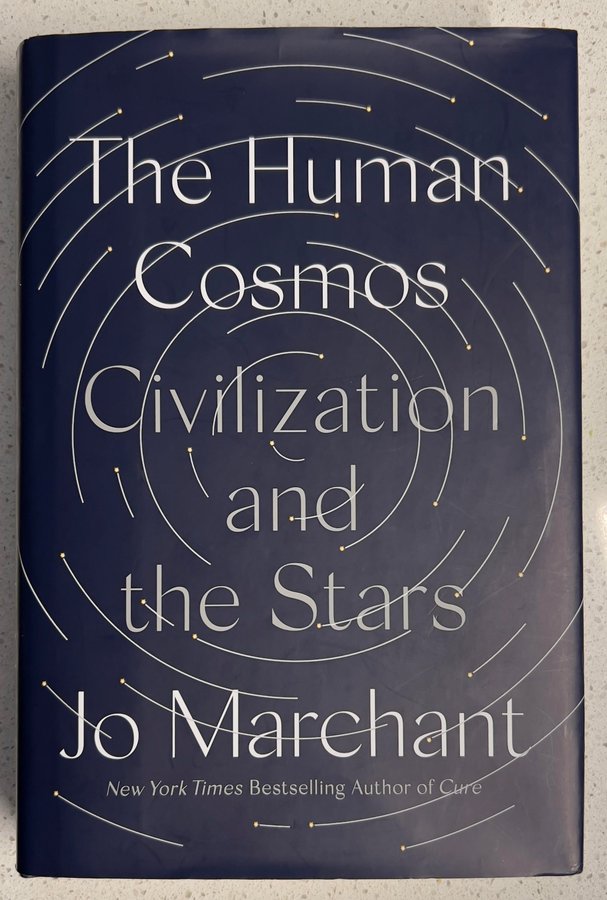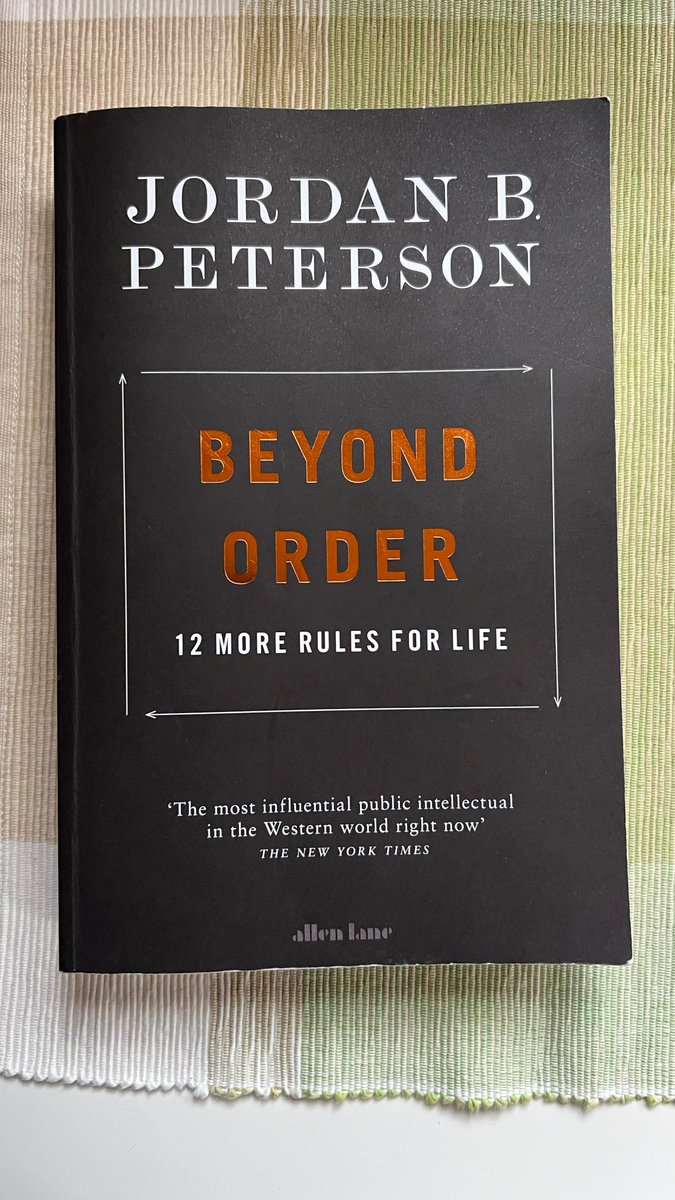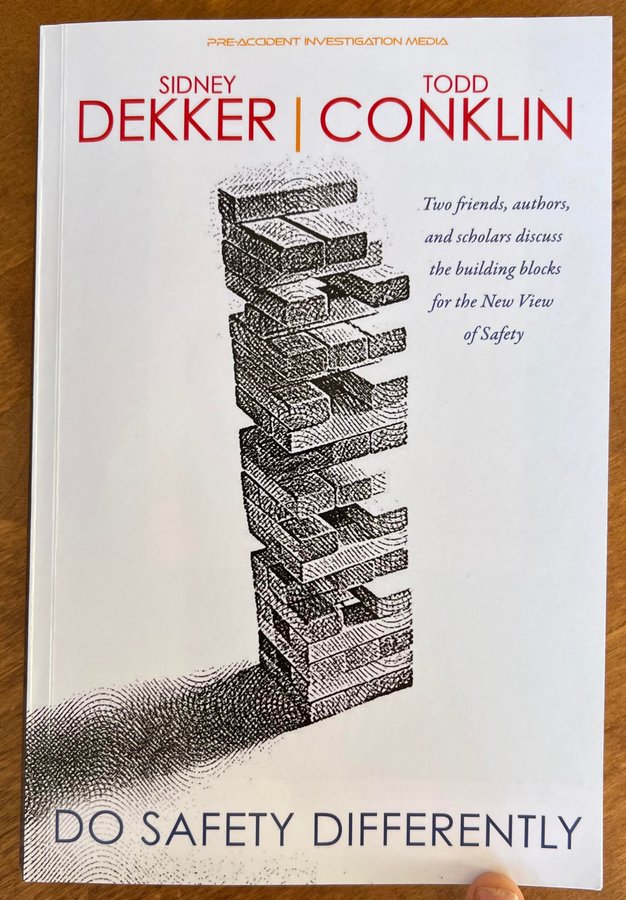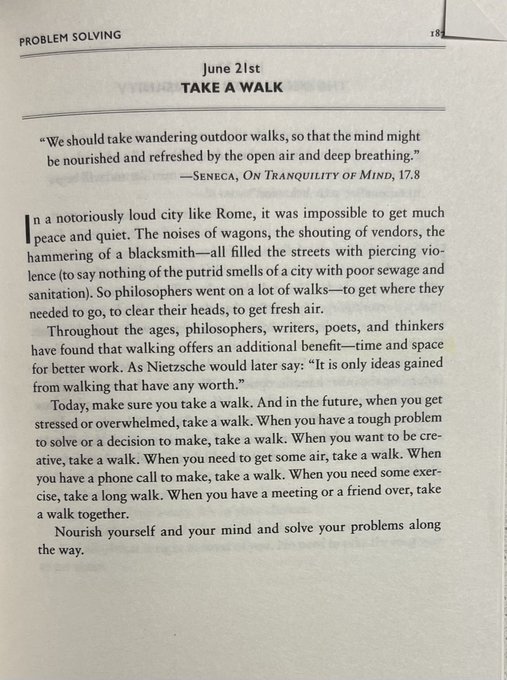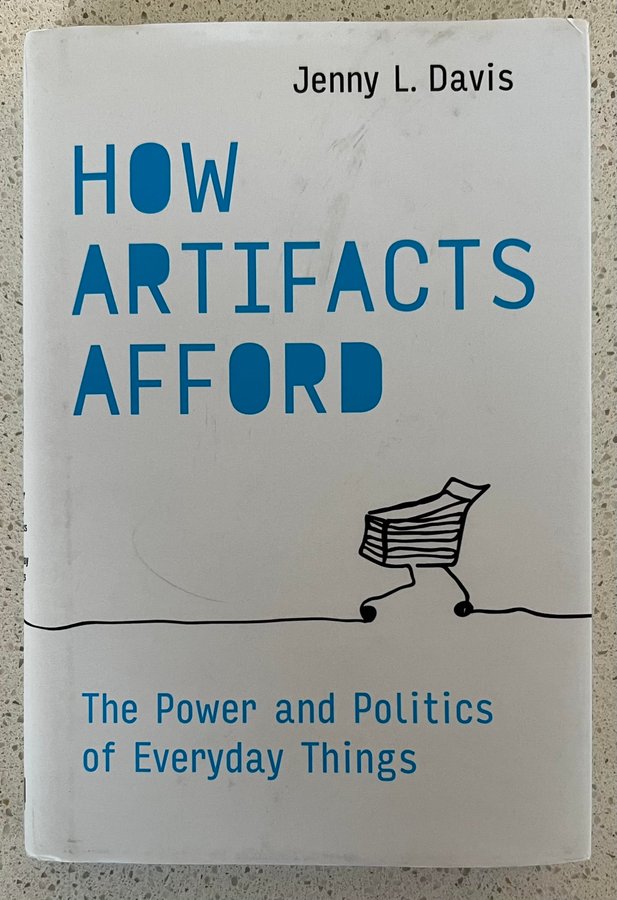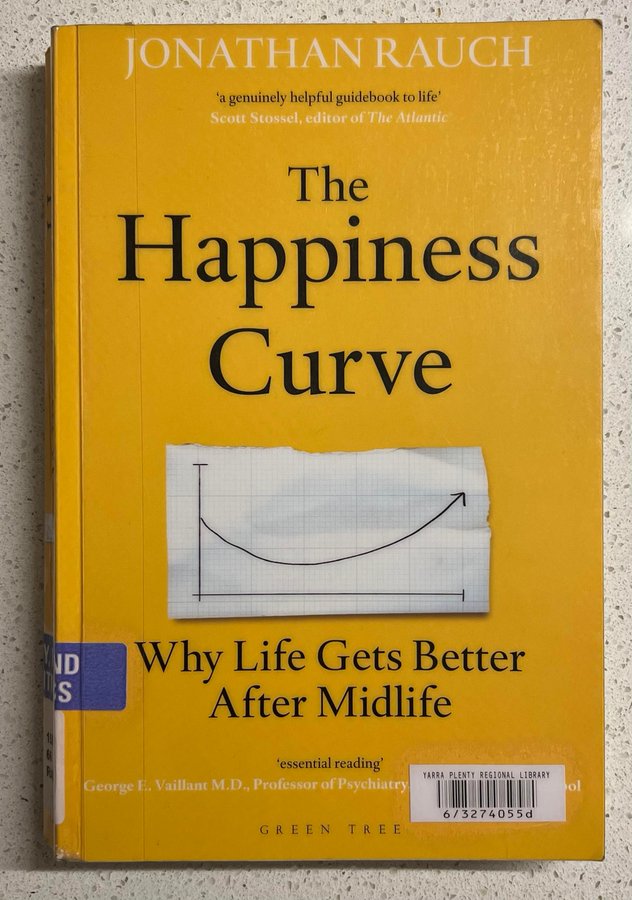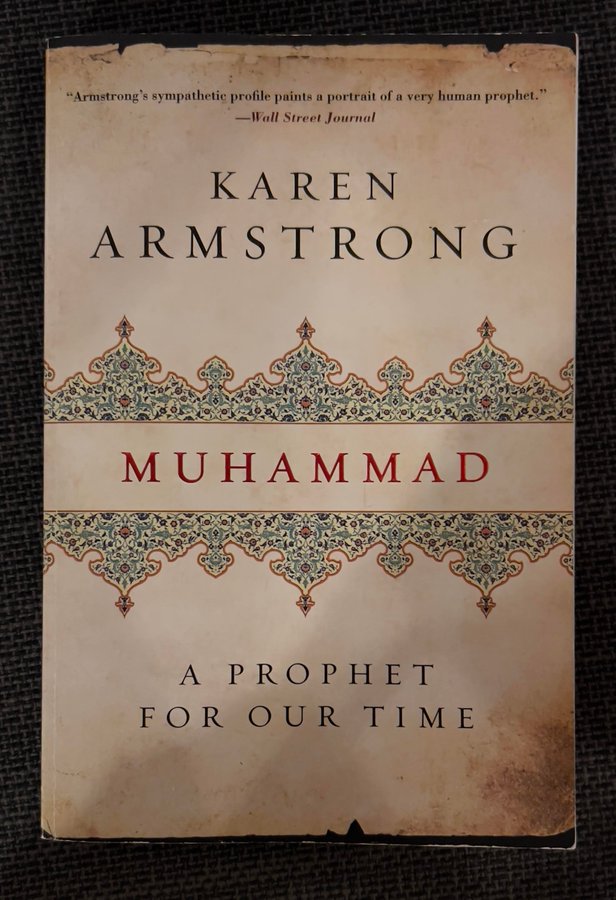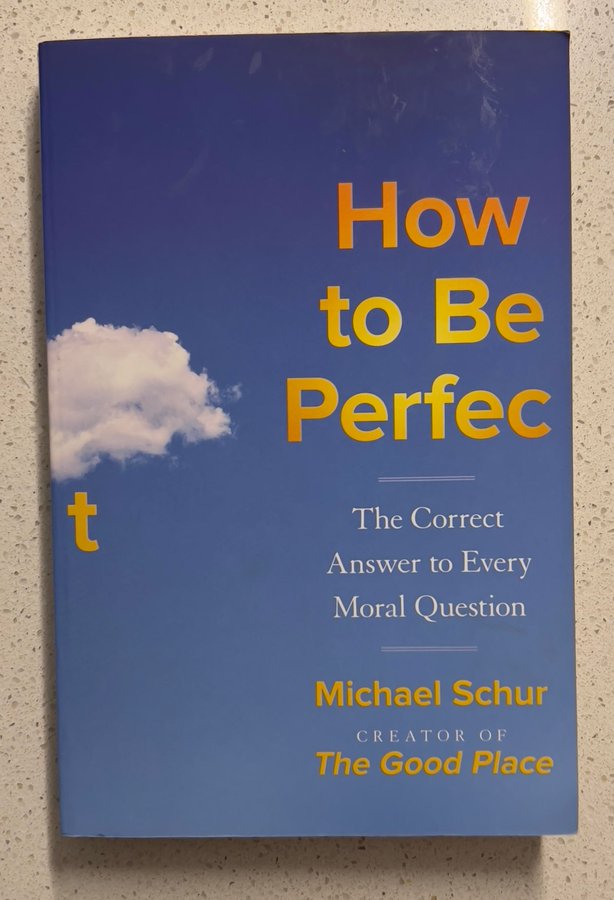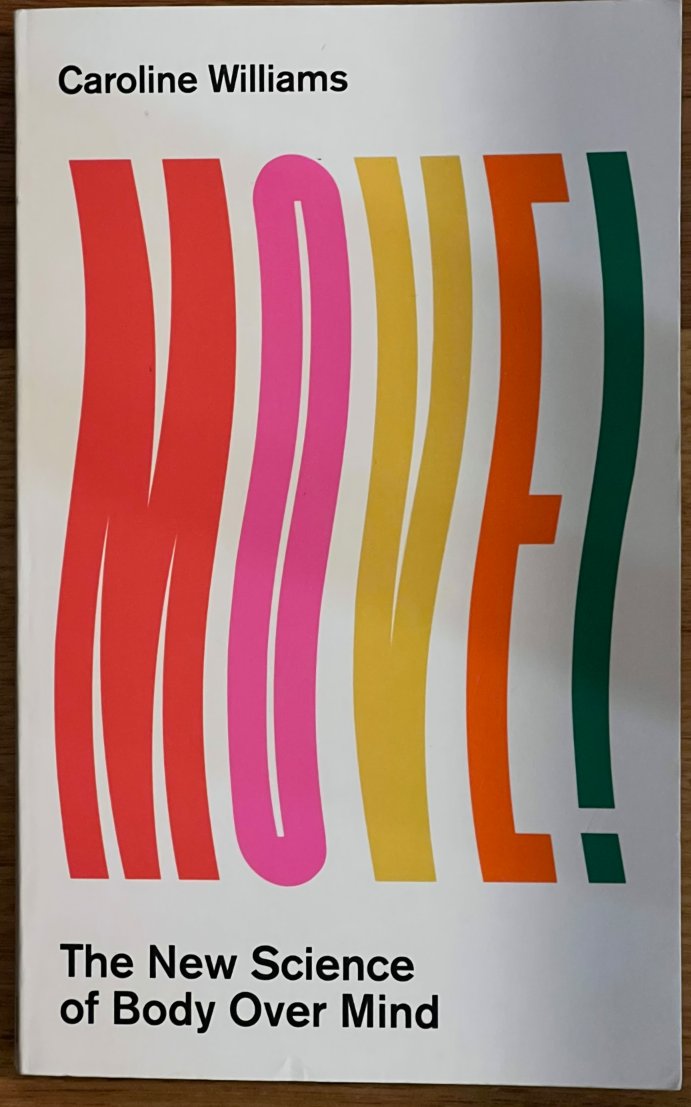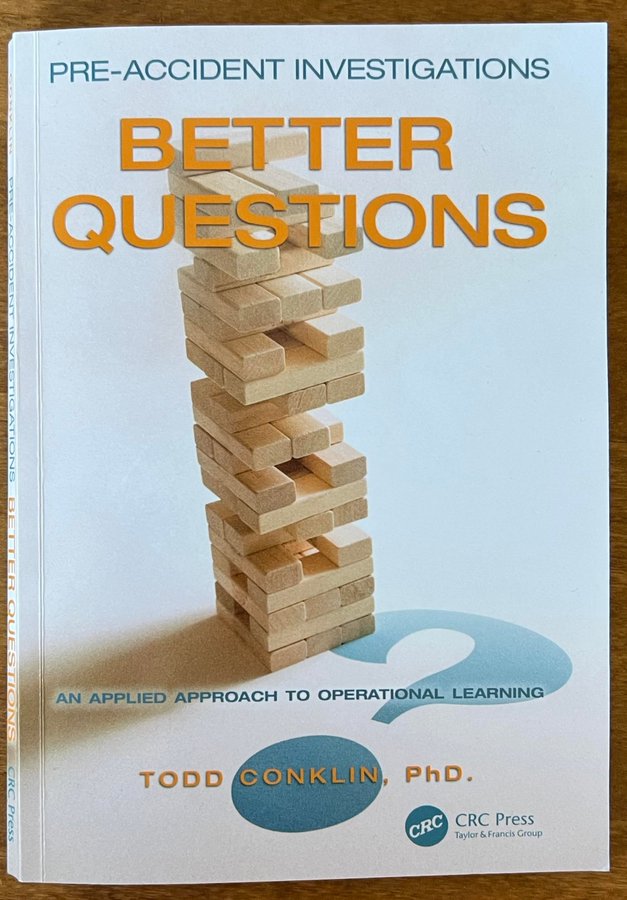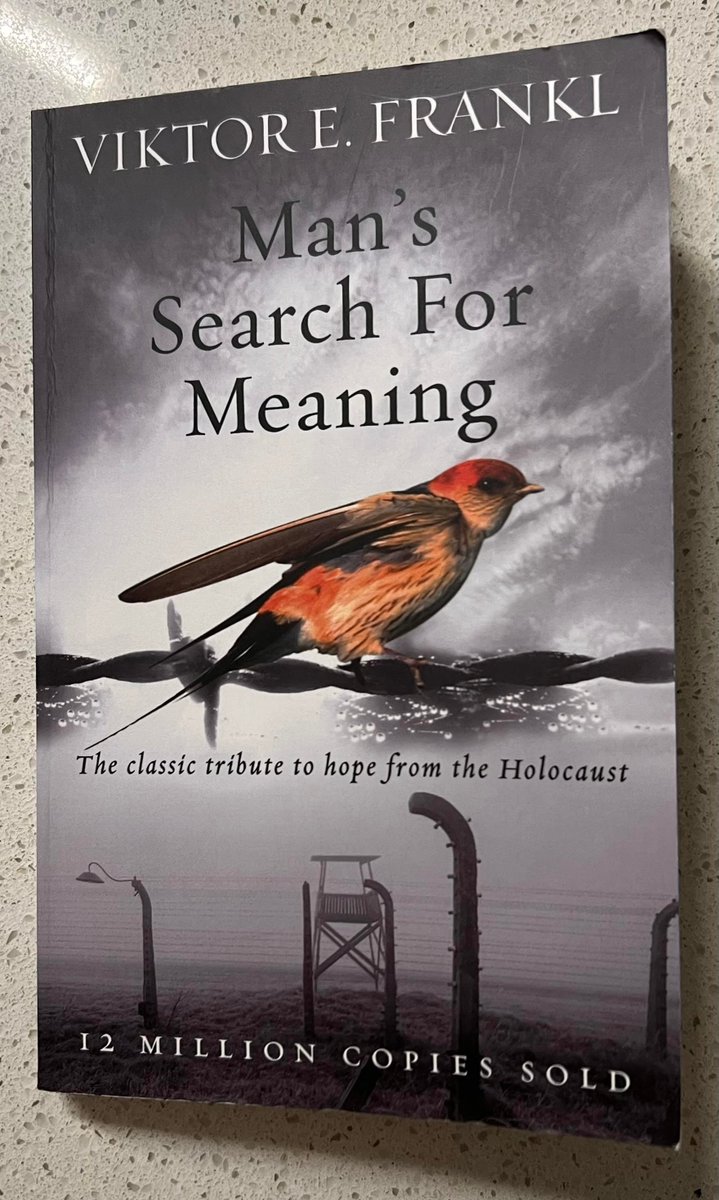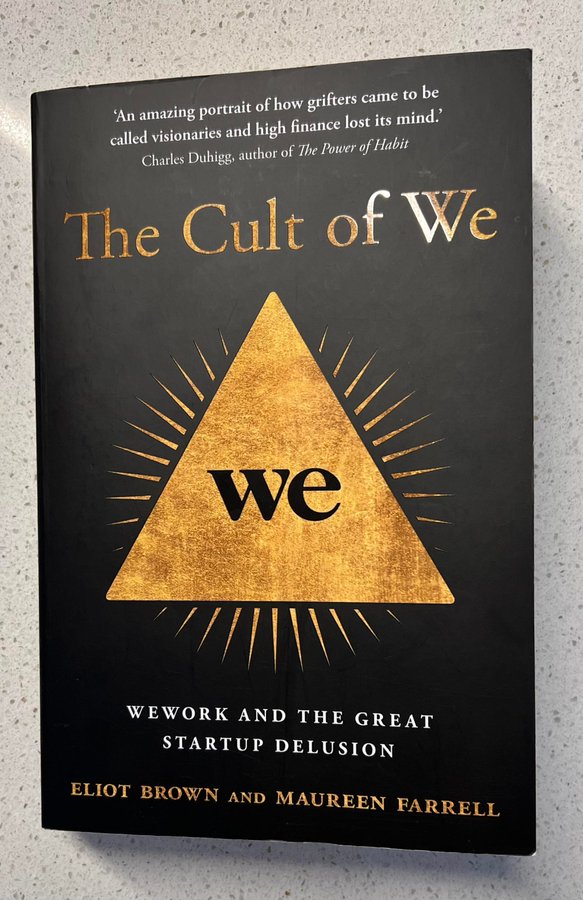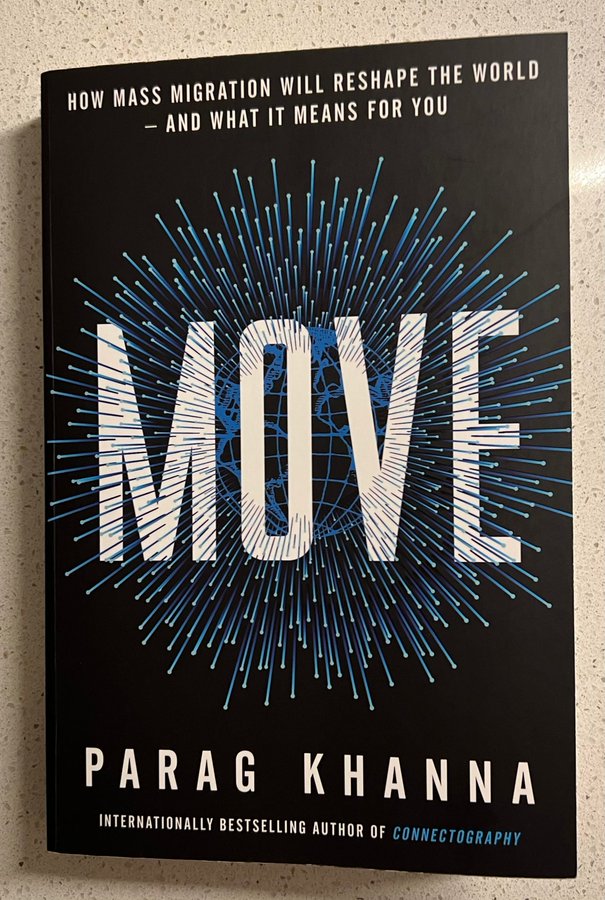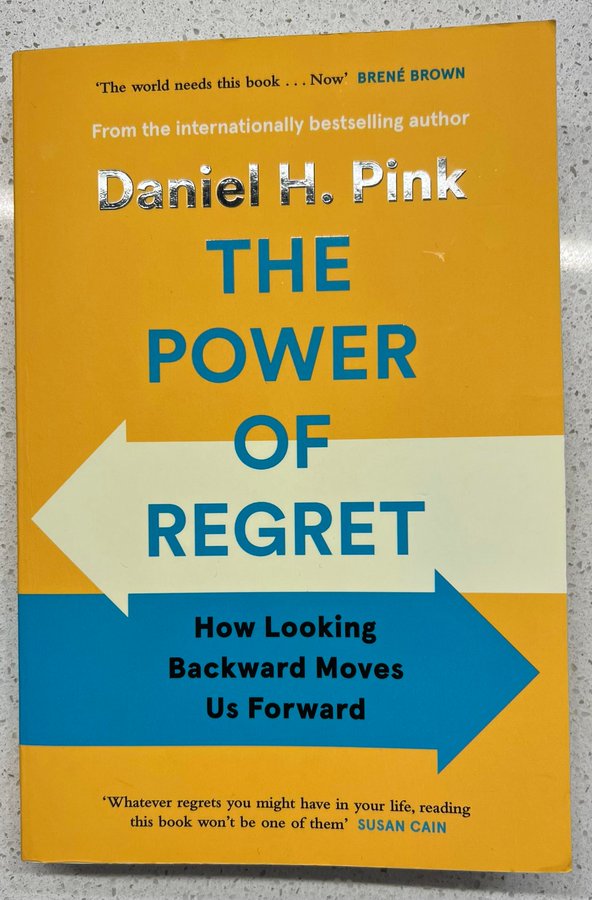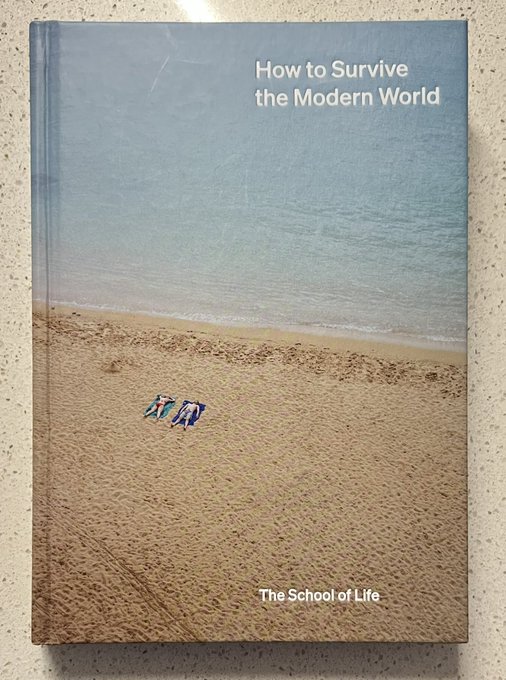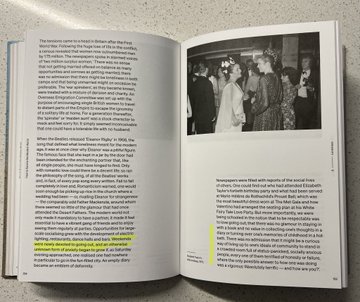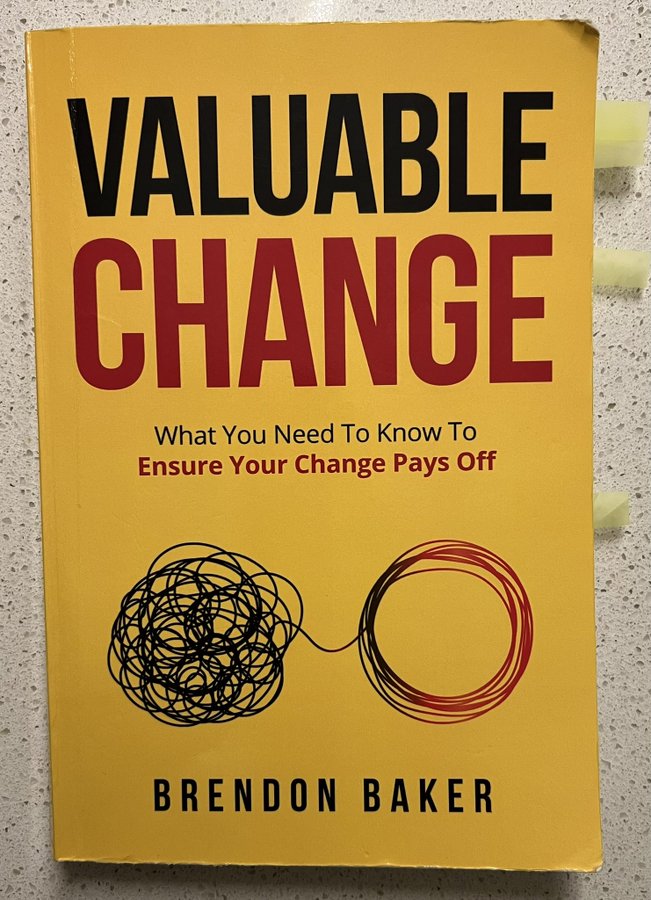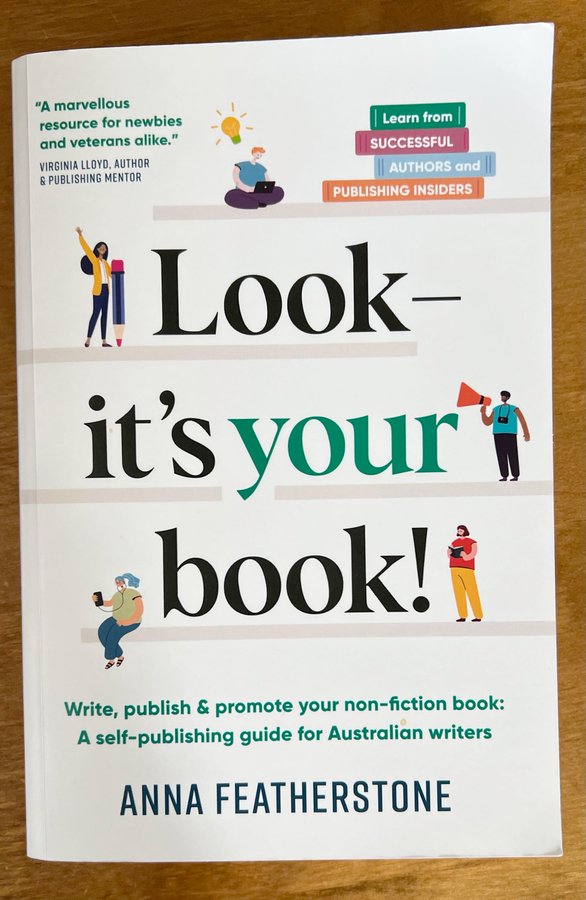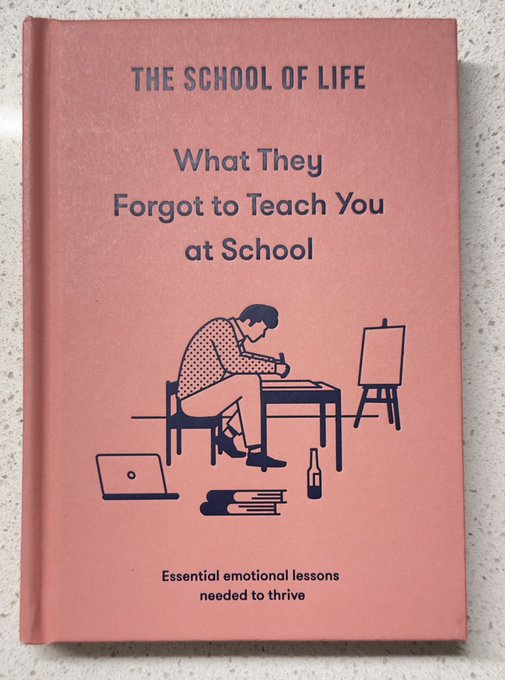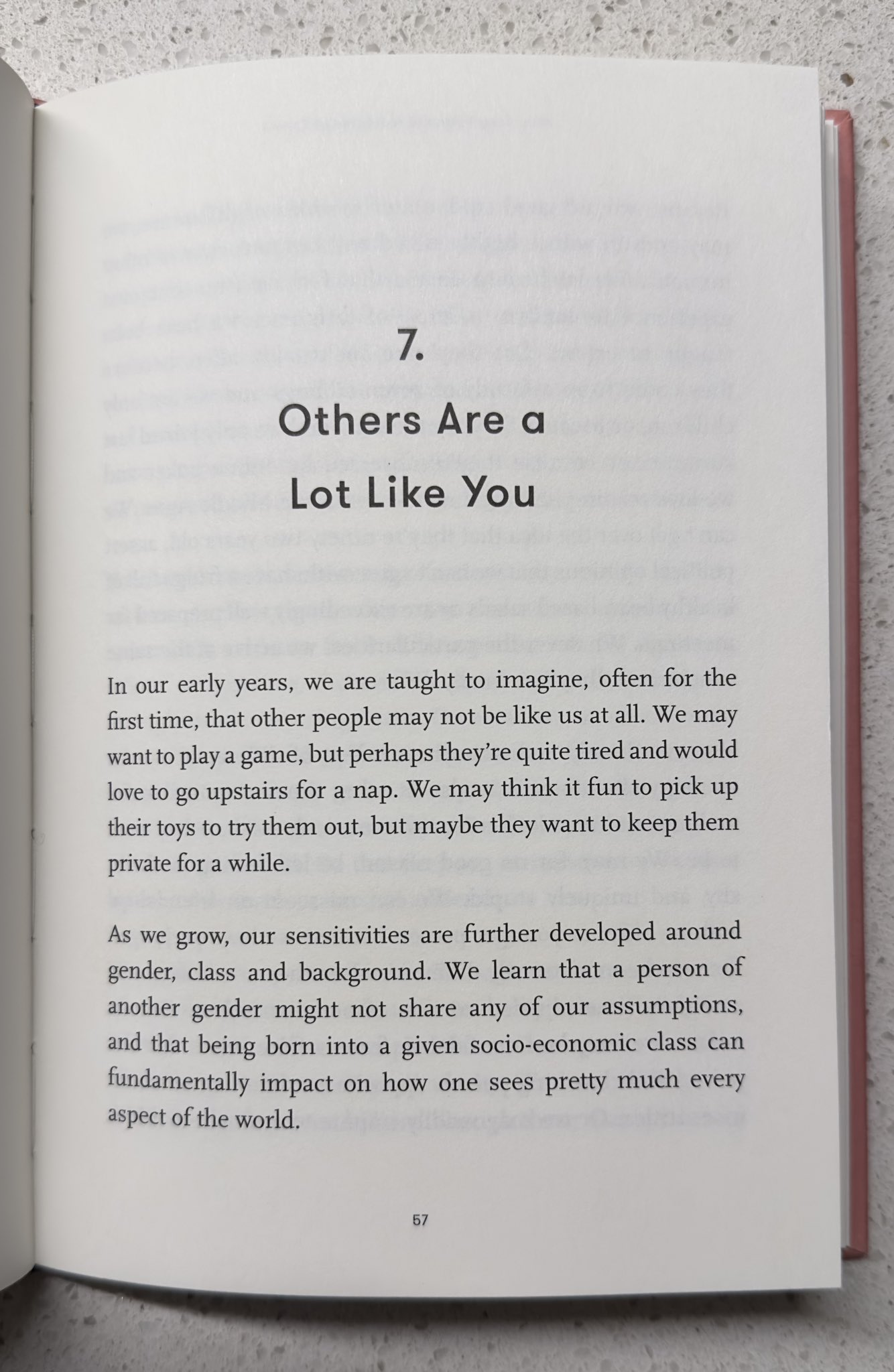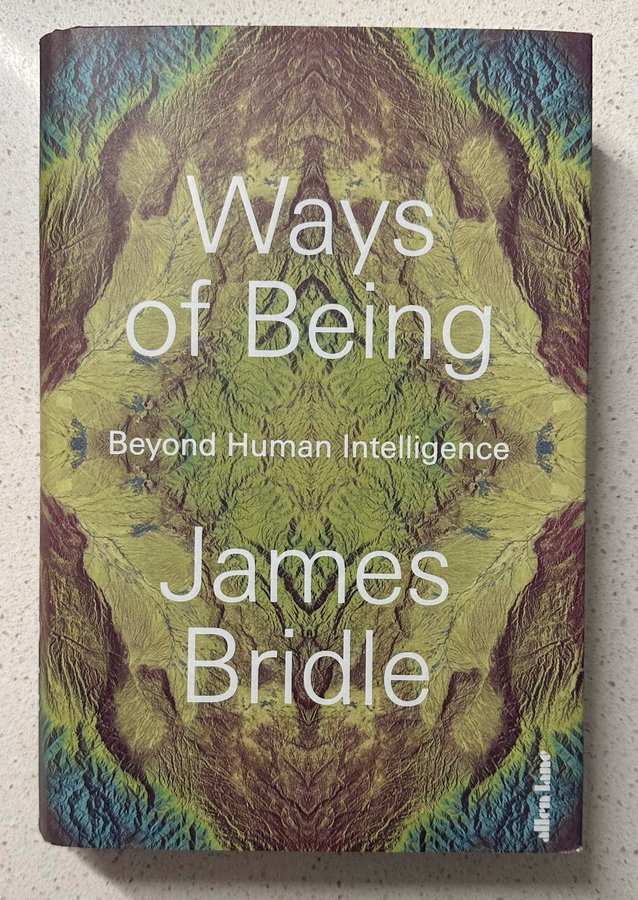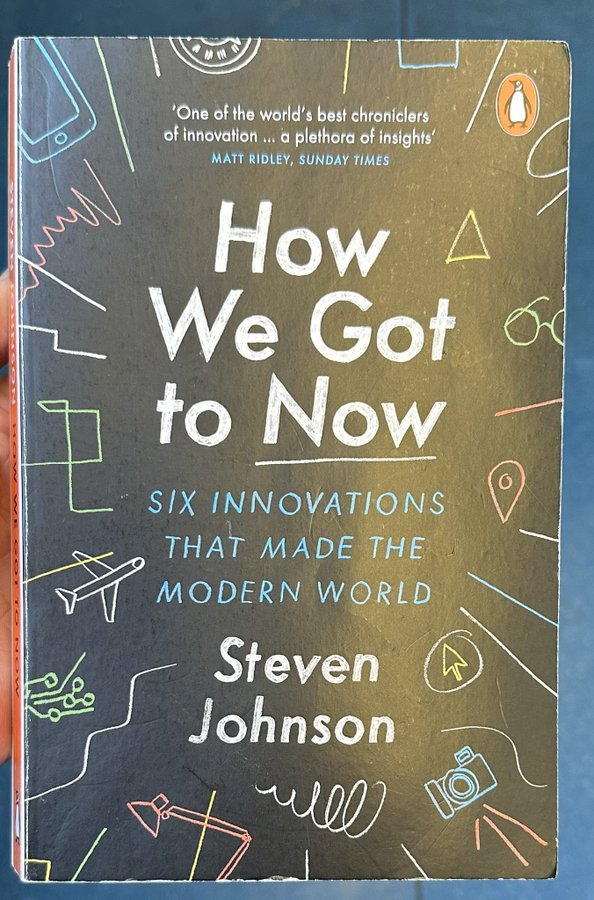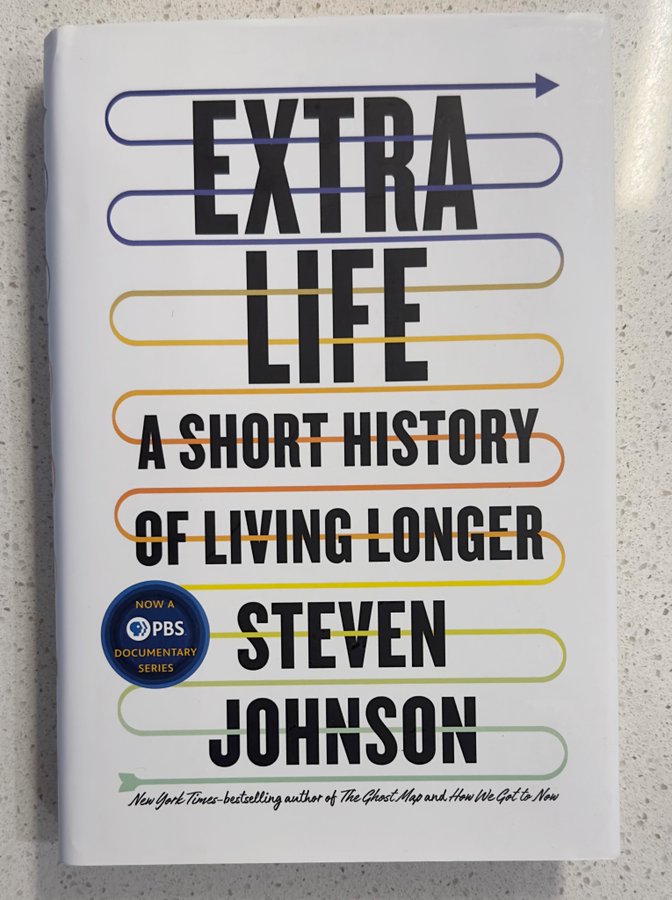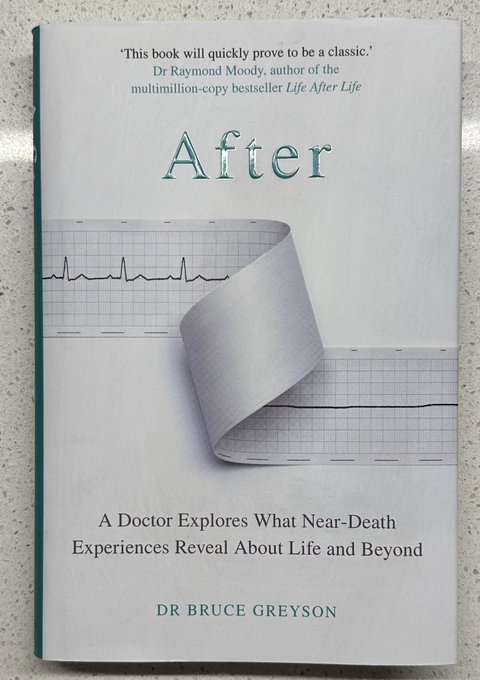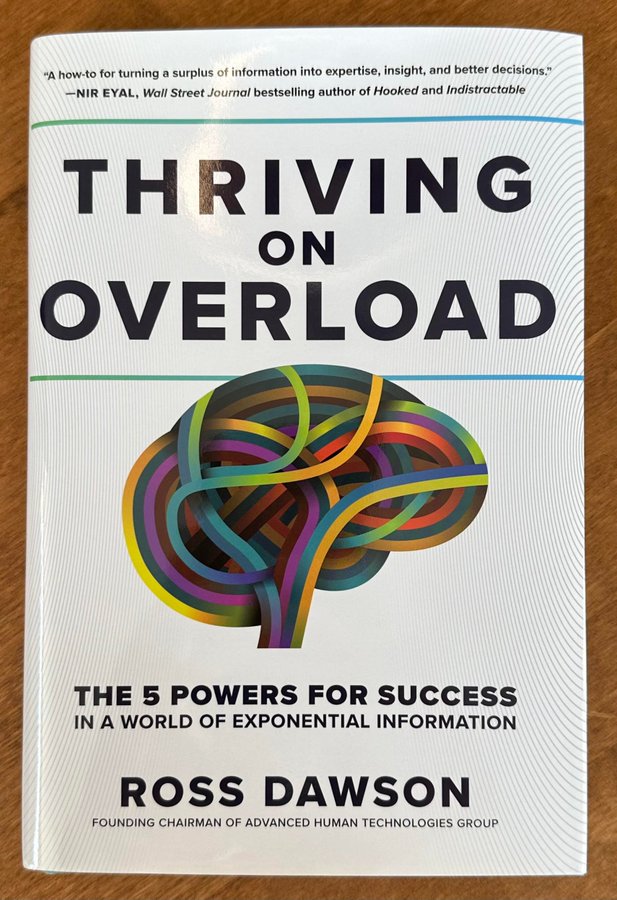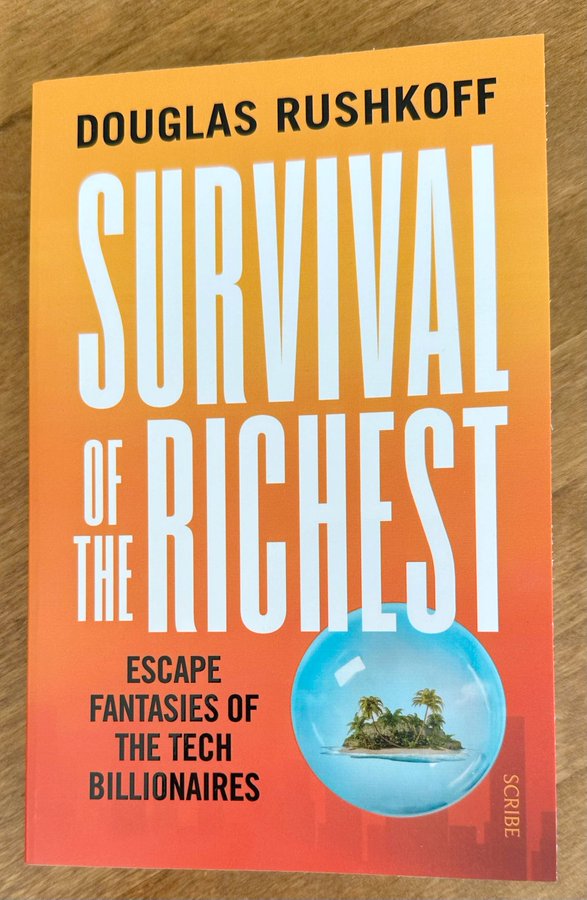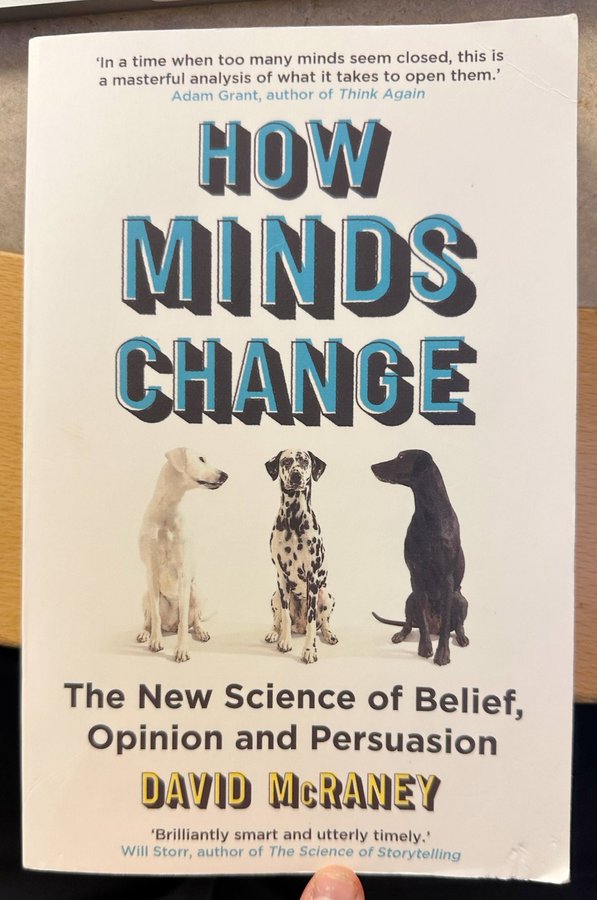The Human Cosmos by Jo Marchant
An exploration of how human societies have always looked to the stars for guidance and meaning – and also a call for rediscovering the importance of awe in our lives. Part cultural history, part science, all connection. https://amazon.com.au/Human-Cosmos-Civilization
Beyond Order by Jordan Peterson
If you’re rudderless in your life or miss guidance, these ‘rules’ function as reasonable scaffolding to (re)building your life on, but they come with a lot of fluff, assumptions and biases paraded as truth & facts. https://amazon.com.au/Beyond-Order-More-Rules-Life/dp/024140763X/
Do Safety Differently by Sidney Dekker and Todd Conklin
A practical guide to taking a better view to safety (from lack of negative outcomes to positive capacity), decluttering safety bureaucracy and building better workplaces. Short and impactful. https://amazon.com.au/Do-Safety-Differently-Sidney-Dekker/dp/B09RM3Z17V/
The Daily Stoic by Ryan Holiday and Stephen Hanselman
Meant to be read over a year; read in a more condensed way, it felt a little repetitive. Still, it has a ton of stoic wisdom and some excellent points to reflect on. https://amazon.com.au/Daily-Stoic-Meditations-Perseverance-translations/dp/1781257655/
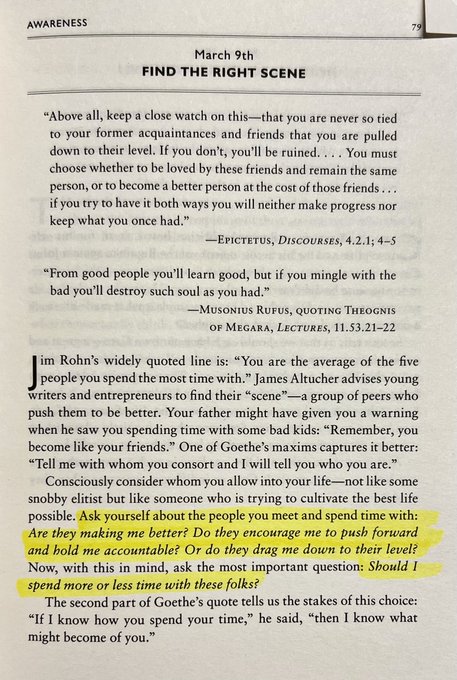
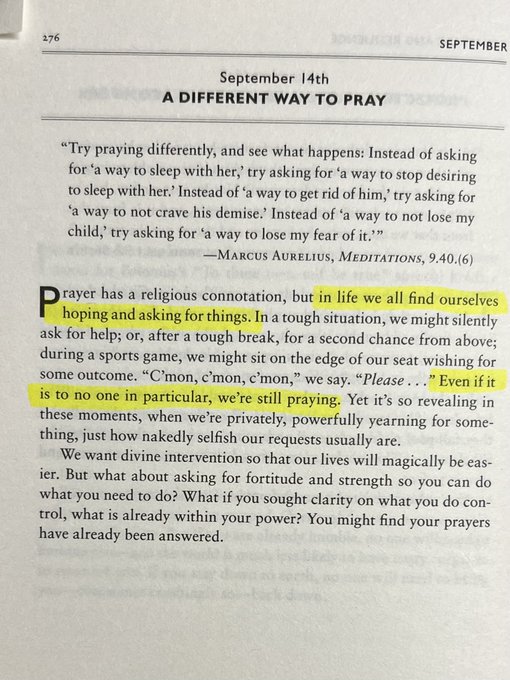
How Artifacts Afford by Jenny L. Davis
Explains and provides a framework for how technologies afford (~how they shape our actions); think of it as a theoretical deep-dive into the ‘How’ of the phrase “We shape our tools; thereafter, our tools shape us.” https://amazon.com.au/How-Artifacts-Afford-Politics-Everyday/dp/0262044110/
The Happiness Curve by Jonathan Rauch
Is as close to a self-help book as I’ve ever read. Lots of interesting (and relatable) material & some practical guidance – though gaining knowledge of the average expected ‘landscape’ is probably the most helpful part. https://amazon.com.au/Happiness-Curve-Better-After-Midlife/dp/1472960947/
Muhammad by Karen Armstrong
Read out of wanting to better understand the origins of Islam. It was quite enlightening and I learned a lot; it’s fascinating how many terms now thrown around with one meaning originated from something completely different. https://amazon.com.au/Muhammad-Karen-Armstrong/dp/0061155772/
How to Be Perfect by Mike Schur
A light-hearted but also actually useful review of some major ethical schools of thought, and will in the process give you lots of food for thought. The subtitle is, as you would imagine, a lie, but we all knew that. https://amazon.com.au/How-Perfect-Correct-Answer-Question/dp/1529421330/
Move! by Caroline Williams
Catalogues much of the recent(ish) research on the importance of moving, and what kind of moving, exactly, has positive impacts. Practical and backed by research; it would however get tedious to follow _all_ the guidance in detail https://amazon.com.au/Move-Science-Body-Over-Mind/dp/1788164628/
Atlas of Forecasts by Katy Börner
This physically massive work first comes across as a coffee-table book, and it is a little bit like that – but it’s also filled with fascinating data, history and information on many different models and visualizations. https://amazon.com.au/Atlas-Forecasts-Modeling-Mapping-Desirable/dp/0262045958/

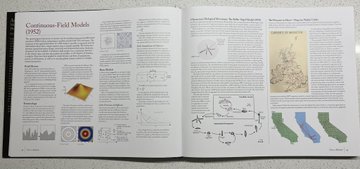
Pre-Accident Investigations: Better Questions by Todd Conklin
Gives practical guidance on how to implement Learning Teams and how to ask better questions. The context is operational safety, but the lessons are infinitely transferable to other contexts. https://amazon.com.au/Pre-Accident-Investigations-Questions-Approach-Operational/dp/1472486137/
Man’s Search for Meaning by Viktor Frankl
A classic I hadn’t gotten to prior. An amazing story of hope and meaning in the worst of situations, the three primary sources of it, as well as an introduction to logotherapy. https://amazon.com.au/Mans-Search-Meaning-Viktor-Frankl/dp/1846041244/
The Cult of We by Eliot Brown and Maureen Farrell
Chronicles the incredible rise & fall of WeWork and serves up many lessons from the dangerous impact of charismatic individuals to the importance of not dismissing data. A critical warning for VCs to ignore. https://amazon.com.au/Cult-We-WeWork-Start-Up-Delusion/dp/000838939X/
Move by Parag Khanna
A broad-strokes story of humanity increasingly on the move. While the macro-drivers covered are 100% valid, there’s quite a bit of simplification going on here and some chapters (*cough* Russia *cough*) have aged remarkably quickly. https://amazon.com.au/Move-Migration-Reshape-World-Means/dp/1474620833/
The Power of Regret by Daniel Pink
Has a simple, but powerful idea; that the common ‘no regrets’ mindset is stupid, that regret is valuable and can be a great force for good. This provides the tools for how to do that. You won’t regret reading it 😉 https://amazon.com.au/Power-Regret-Looking-Backward-Forward/dp/1838857036/
How to Survive the Modern World by The School of Life
A profoundly important book; with deft accuracy and honesty, it reveals and dissects everything that is wrong (and right) with the age we live in, and charts a path towards improving it. Read it. https://amazon.com.au/How-Survive-Modern-World-Unsteady/dp/1912891530/
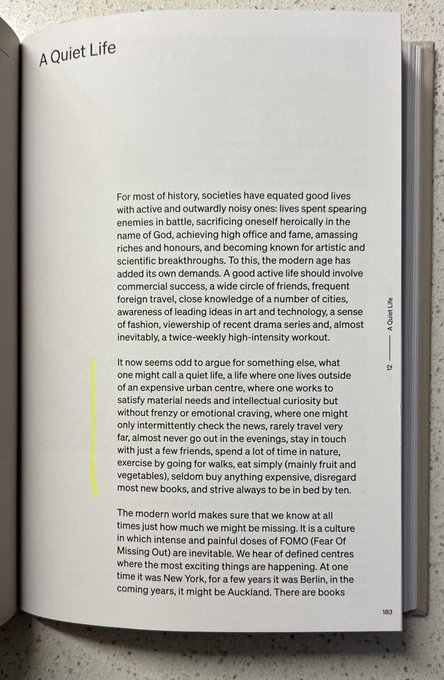
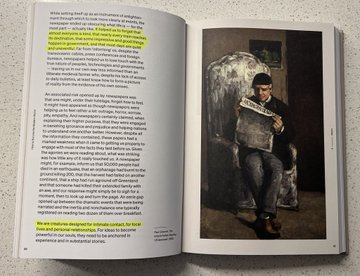
A More Loving World is another great book from The School of Life.
Guaranteed to make you think about love, compassion & kindness in a different (+ better?) way, and hopefully shift your perspective and actions around a bit, too. A quick but important read. https://amazon.com.au/More-Loving-World-Increase-compassion/dp/1912891867/
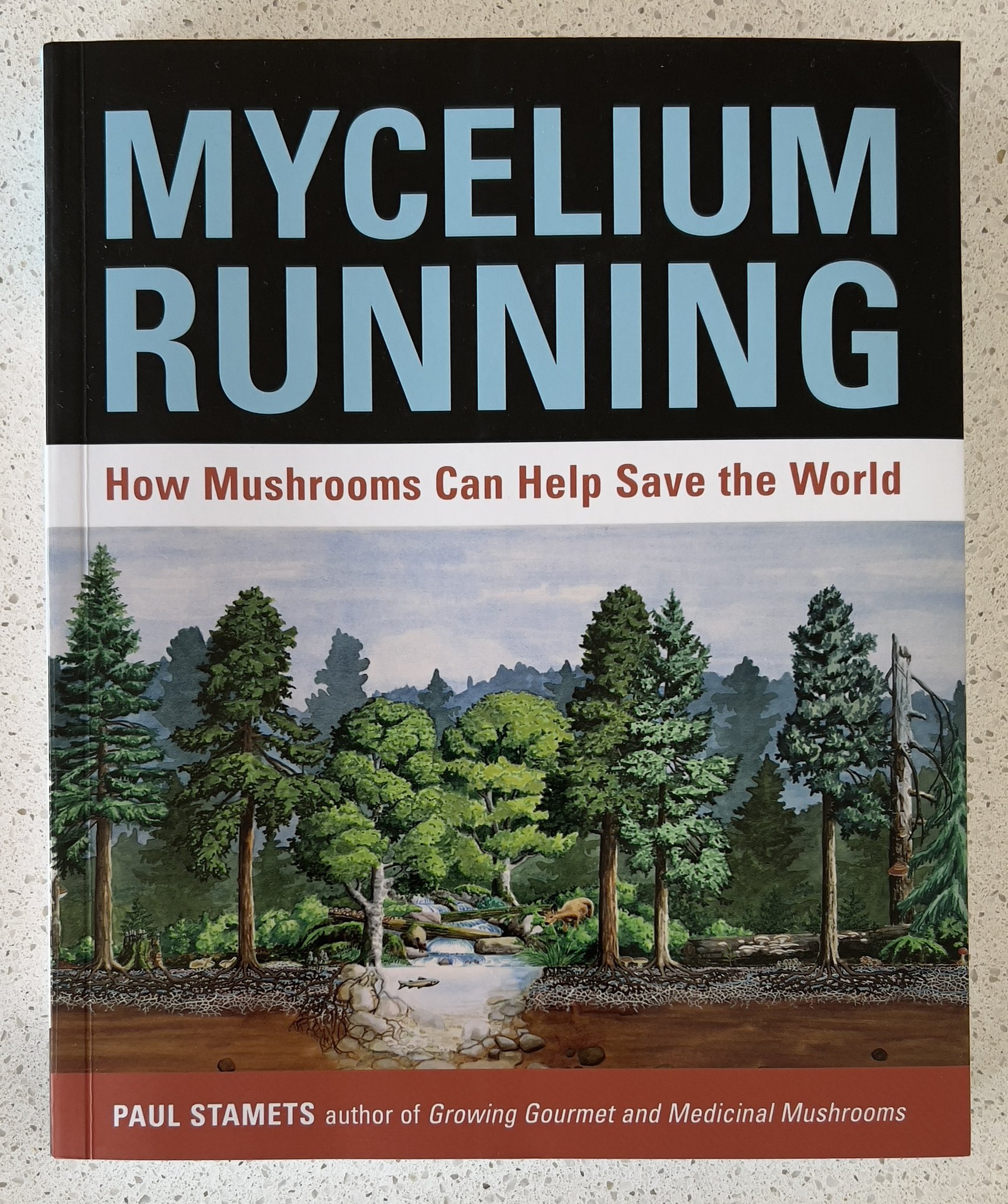
Mycelium Running by Paul Stamets
Provides a mind-blowing in-depth tour to the world of fungi; from how they can be used for decontamination to cultivating them, there is an incredible amount of knowledge in this book, along with great photos. https://amazon.com.au/Mycelium-Running-Paul-Stamets/dp/1580085792/
Valuable Change by Brendon Baker
Now, I’m highly allergic to most business books, but I’m glad to report this is different. Mostly common-sense reminders (but they’re needed), packaged in an easy to use and quick to read format. It’s actually useful+good. https://amazon.com.au/Valuable-Change-What-Need-Ensure/dp/064512270X/
Look – it’s your book! by Anna Featherstone
For a long time, I’ve toyed with the idea of writing a book. This was a great resource for educating myself on the process and will no doubt be a useful reference guide to many of the practicalities. https://amazon.com.au/Look-Publish-Non-Fiction-Self-Publishing-Australian/dp/064534222X/
What They Forgot to Teach You at School by The School of Life, whose books I’ve become a big fan of.
This, too, provides some great practical guidance people/society have neglected to tell most of us. Good news is it’s never too late to learn these things. https://amzn.asia/d/7cOUYx7
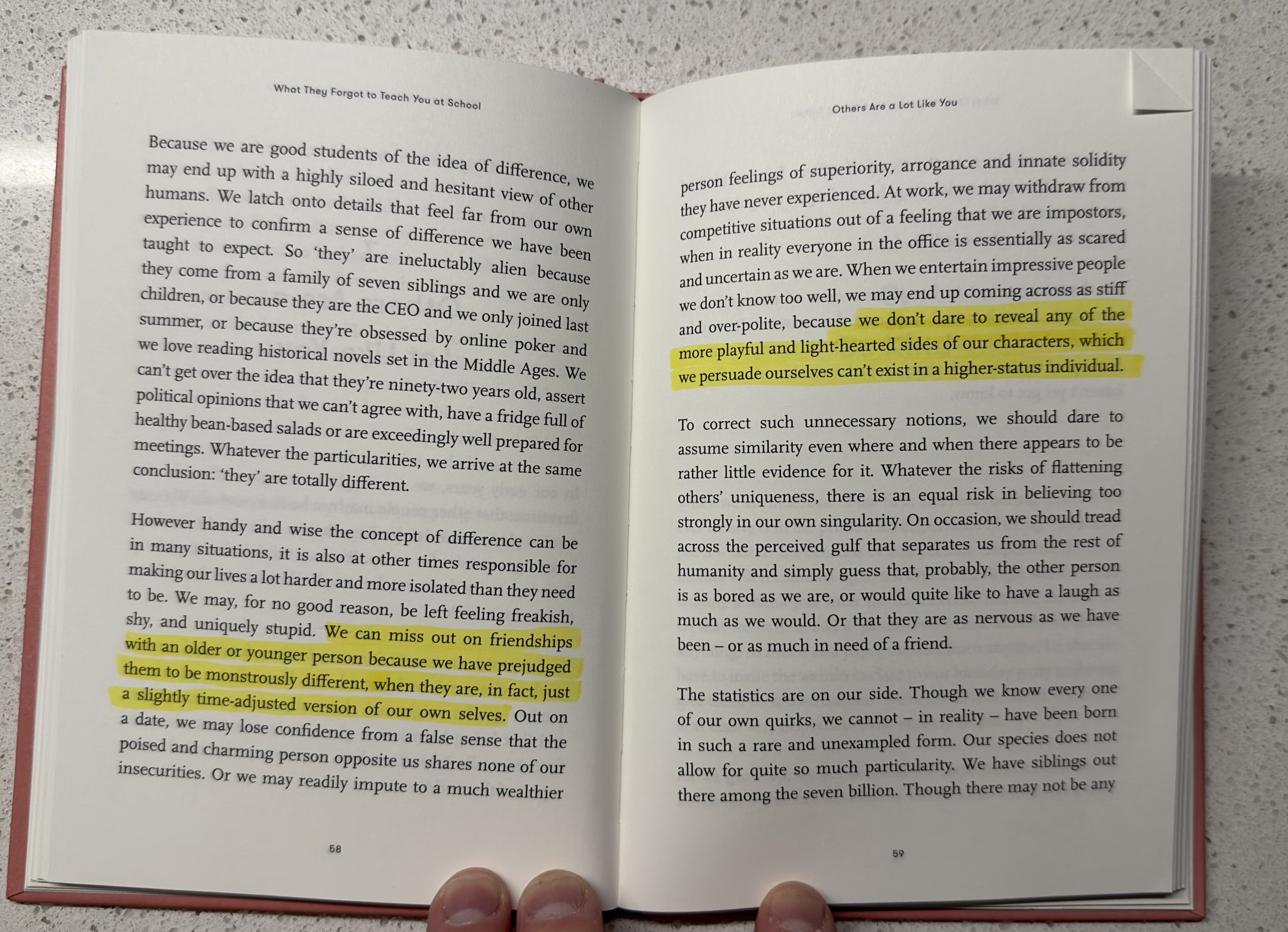
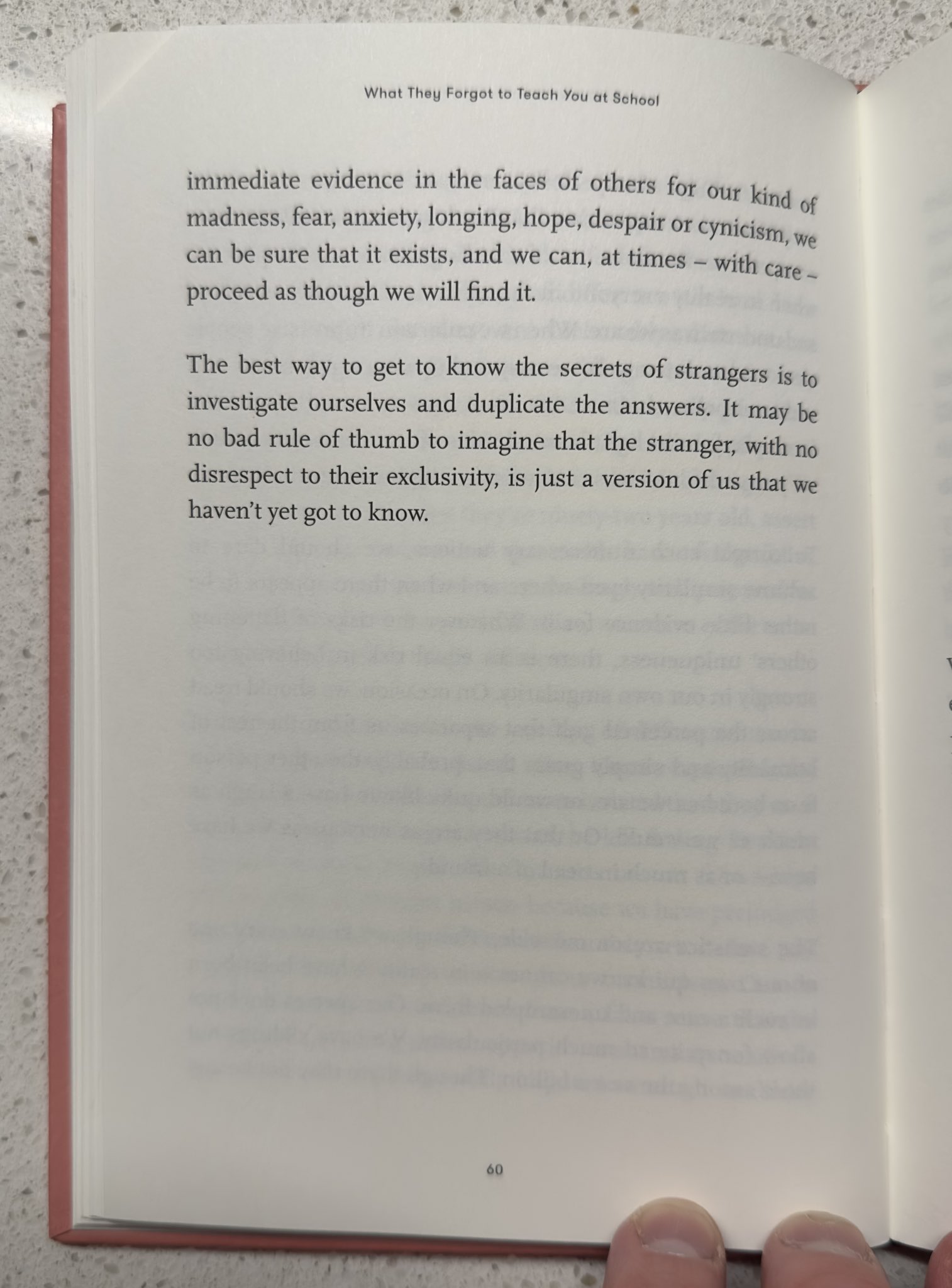
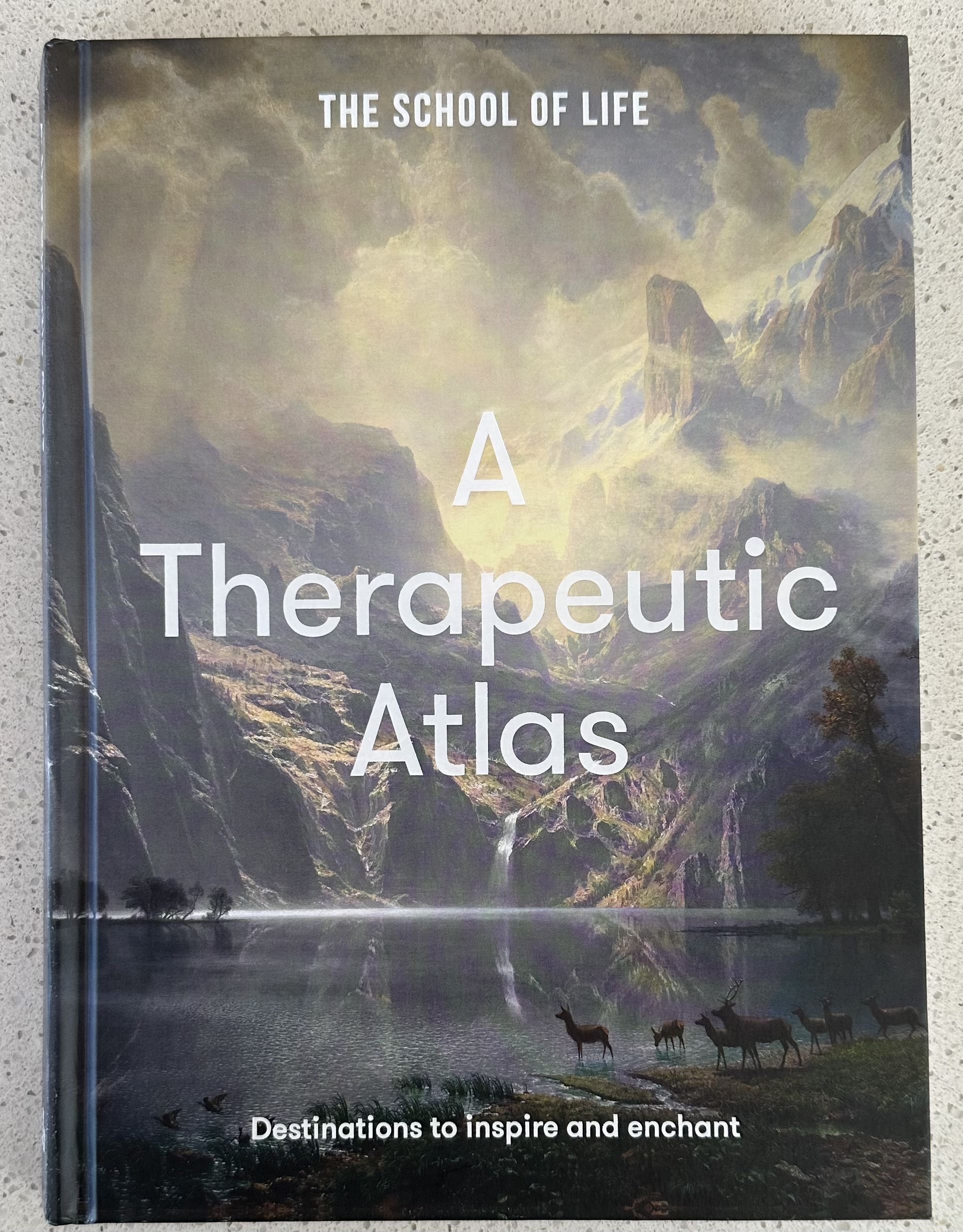

I’ve been a fan of The School of Life for a few years now. I think their work – in books as well as online – is a wonderful source of food for thought, and allows us to peel away some of the layers of society that prevent us from actually seeing things.
The subject of our review today, of “A Therapeutic Atlas: Destinations to inspire and enchant” is a supremely difficult book to categorise. At first glance, it could be mistaken for a quirky travel guide, with its 60 physical destinations ranging from the commonplace to the extraordinary. But as you delve deeper, and into destinations that are not so much singular places you book a trip to, it becomes clear that this is more than just a collection of travel destinations. It’s a guide to exploring internal landscapes as much as external ones.
What makes “A Therapeutic Atlas” so compelling is its ability to transform even the most familiar locations into spaces of deep reflection and discovery. Take, for instance, the pages on “Airport” or “Train Journey”. These are places most of us have been to several times, yet the book manages to peel back layers of mundane experience to reveal profound insights about our lives and journeys.
Each destination in the book is paired with a photo and one page of text, making it a visually and intellectually stimulating read. The combination of the context and the place makes for unique experiences. I went to the Gap Cliff in Sydney inspired by this book, and as a result the visit was a profound experience. The text provided a lens through which the otherwise simply stunning cliff became an exploration of the world, self and space. Sidneysiders may know of the backstory to the cliff; I did not.
The book’s strength lies in its blend of philosophical insight, psychological depth, and practical advice, applied not just to the psyche but to physical spaces and experiences. It invites readers to embark on journeys, both literal and metaphorical, offering new perspectives on familiar places and introducing us to locales we might never have thought to explore. I now want to visit, for example, Killala Bay Landing Station in Ireland.
* Rating: 5 out of 5
* Dog-ear index: N/A (not the kind of book where this makes sense)
* Who is it for: For those of us who are explorers, whether of the world or our cultures and minds; preferably both.
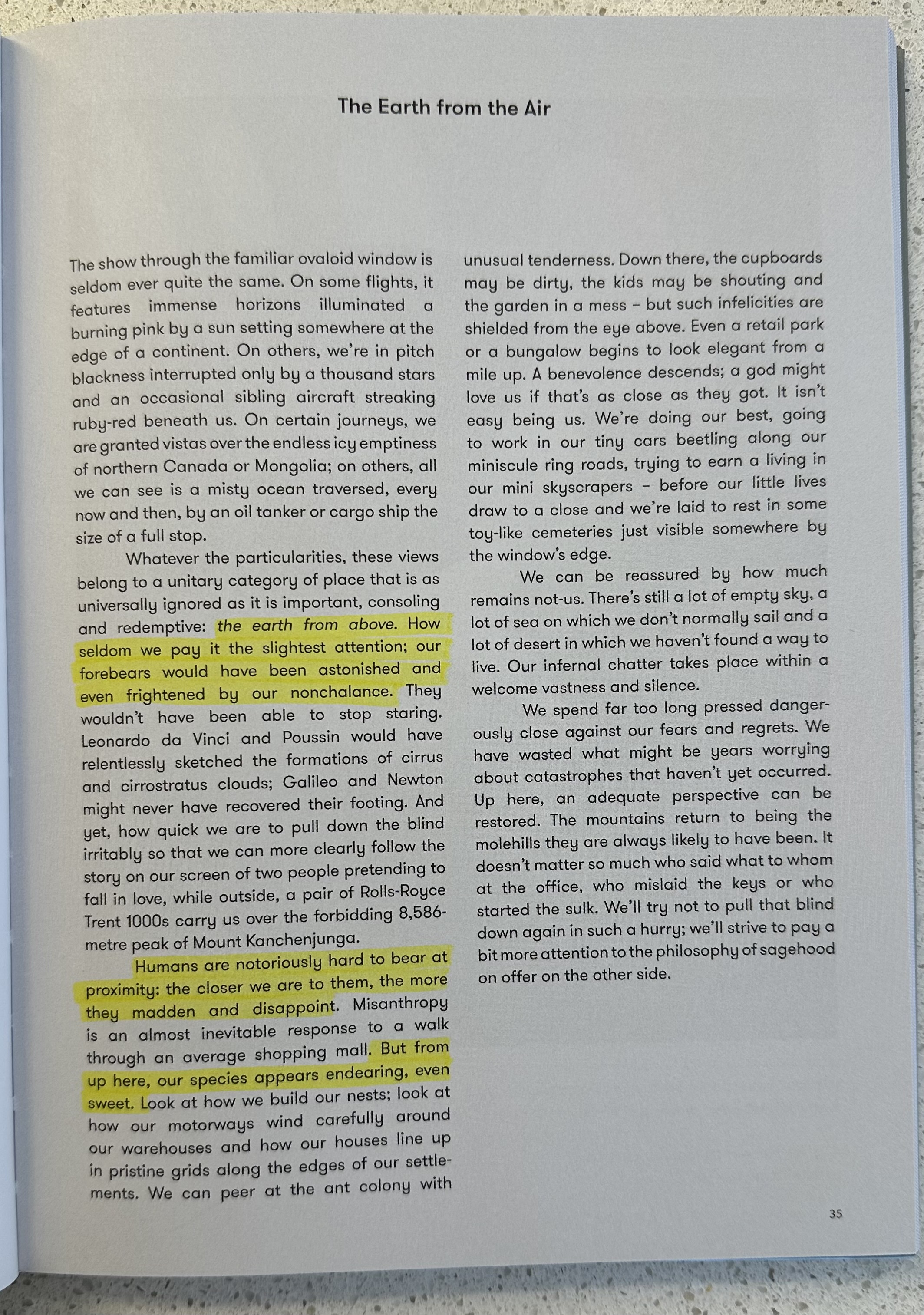
Ways of Being by James Bridle
Will expand your notion of what intelligence is, all the while teaching you surprising things (even from the history of computing). Many examples from our world are bound to foster your sense of connectedness. https://amazon.com.au/Ways-Being-Beyond-Human-Intelligence/dp/0241469651/
How We Got to Now by Steven Johnson
Takes half a dozen innovations that enabled our entire way of life and sheds light on how they came to be, and the complex webs of interactions that then led to some profound Nth order consequences. Fascinating. https://amzn.asia/d/cZPb20l
Extra Life, another book by Steven Johnson
This one takes a look at the most life-saving (life-extending) innovations and how they came to be. There is a certain underlying trend here, and it doesn’t sit well with how we view innovation today. https://amazon.com.au/Extra-Life-History-Living-Longer/dp/0525538852/
After by Bruce Greyson
Is as balanced and scientific a look into the phenomenon of near-death experiences (NDE) as is humanly possible. It’s a very real phenomenon, one we don’t understand but that has an overwhelmingly positive impact on experiencers. https://amazon.com.au/After-Doctor-Explores-Near-Death-Experiences/dp/1787634620/
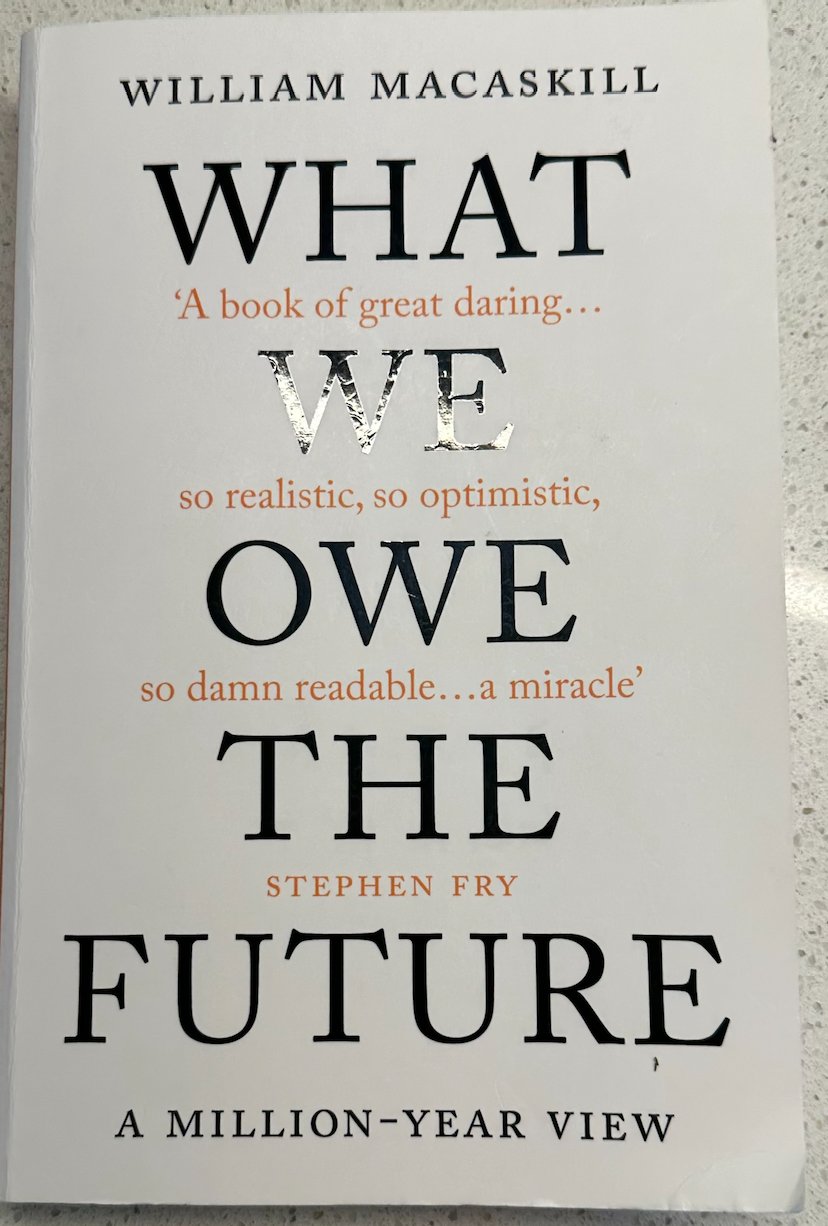
What We Owe the Future by Willoam Macaskill
Has some profound and persuasive points to say about the unusual meaningfulness of actions in our era and the importance of long-termism; the future matters even more than we think. Enlightening & thought-provoking. https://amazon.com.au/What-We-Owe-Future-Million-Year/dp/0861542509/
Thriving on Overload by Ross Dawson
Is actually a guide on how not to get overloaded in today’s superabundance of information. A wonderful guide for knowledge professionals in particular, filled with practical guidance on building useful habits wrt info. https://amazon.com.au/Thriving-Overload-Success-Exponential-Information/dp/126428540X/
Survival of the Richest by Douglas Rushkoff
A (mostly) informed manifesto against not just tech billionaires’ weird & dangerous views, but “The Mindset”; powerful argument for some major changes to how our society and the prevailing economic systems work. https://amazon.com.au/Survival-Richest-escape-fantasies-elite/dp/1922585793/
How Minds Change by David McRaney
An incredibly powerful overview of how minds change (and how to change them); offers practical approaches but also mindful guidance on the how and why. Confronting, scary and hopeful at the same time. https://amazon.com.au/How-Minds-Change-Making-Argumentative/dp/1786075946/
